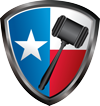
Dino Marcaccio
President
Former Texas Comptroller State Tax Auditor
Tax Rule 3.330 – Data Processing
There is, without a doubt, one taxable service Tax Rule that stands out far above ALL others as being vague and undefined and which can be applied, right or wrong, at the discretion of an inexperienced rookie Texas Comptroller auditor. Think about it. Just about any company’s services which are provided by the use of the internet can be subject to sales tax for a four year look-back audit period based on this poorly drafted tax rule.
Tax Rule 3.330 – Data Processing (supporting Statute 151.0035), along with many other service tax laws, were enacted in the late 80’s due to the early 80’s recession and the need for Texas to raise sales tax revenue. Texas was and still is a ‘Sales Tax State’ (i.e., no personal income tax) and folks were just not buying enough physical goods (i.e., tangible personal property) to run the State during the 1980s recession. So Texas, along with many other Sales Tax States decided they needed to tax some intangible transactions (i.e., services). Therefore, back in 10-1-1987, the Texas Legislature enacted Tax Code Section 151.0035 – DATA PROCESSING SERVICE and the Texas Comptroller dutifully drafted the supporting Tax Rule 3.330 – DATA PROCESSING SERVICE. The problem was, it was a very bad idea. At least for any business providing a service using the internet.
Why Tax Something Called ‘Data Processing’?
The Texas Legislature could have picked ANY number of ‘less vague’ services to tax such as selected ‘professionally licensed’ service providers (i.e., doctors, lawyers, engineers, etc.) but instead decided to dream up a vague lax law that very few people, including Comptroller auditors, could possibly define. I have a theory and would bet anybody to prove me wrong. Here it is.
The majority of Texas politicians are degreed and licensed professionals of some sort (i.e., lawyers, doctors, etc.) who could have easily decided to create what I will call a ‘professional services’ sales tax law to help raise revenue. They could have named it the: ‘PROFESSIONAL LICENSED SERVICES’ and specifically applied sales tax to their own services. There would be no vagueness about the tax law. It would apply to a narrow list of professional services such as doctors and lawyers and there would no vagueness about WHAT was taxable and WHO needed to tax their services. Problem solved.
And to top it off if those professionals would be very careful about collecting and remitting sales tax since the Texas Comptroller could easily ask their respective Texas Licensing Agencies to punish them for non-compliance with the new sales tax law. So you can see that this proposed tax rule would result in services that could be: (1) easily identified, (2) easily audited for by the Texas Comptroller’s Office and (3) easily enforced because the licensing agency enforcement leverage would ensure compliance.
Now ask us why this was not done. Simple. The majority of Texas politicians are doctors and lawyers (or other licensed professionals) and they sure didn’t want to tax their own services in order to keep Texas running back in the 80’s. So they dreamed up Tax Rule 3.330 -Data Processing along with some other vague tax rules to be interpreted now by mostly young newly hired rookie Texas Comptroller auditors. Think of it. The Texas Comptroller employs about 650 tax auditors. The average auditor is a rookie with maybe 1 to 2 years of experience who will then decide if 100% of your services are not taxable based on the perfectly vague Tax Rule. 3330.
In following blog posts, I will provide numerous examples of ‘service providers’ who were audited and incorrectly assessed VERY large amounts of sales tax, penalties and interest based on Tax Rule 3.330. IMO this was and is simply a BAD TAX RULE. But all you can do is educate yourselves.
Checkfree Services Corporation
One last important item. Currently there is a potentially precedent setting case being heard by the Texas 14th Court of Appeals (No. 14-15-00027-CV) involving limiting the application of Tax Rule 3.330 – Data Processing. I will call it the Checkfree Services case.
A Texas District Court decision (No. D-1-GN-13-003667) already ruled in favor of the petitioning business. The Texas Comptroller then appealed to the next higher court (14th Court of Appeals) which recently issued an Affirmed Memorandum Opinion (AMO) on April 19, 2016 which again supported the District Court’s decision. However, this case is not over yet. I believe that this case is an indication of the willingness of the upper courts, but not the Comptroller’s Administrative Courts, to seriously consider limiting the currently unlimited application of Tax Rule 3.330.
Stay tuned and keep your ‘dukes up’.

